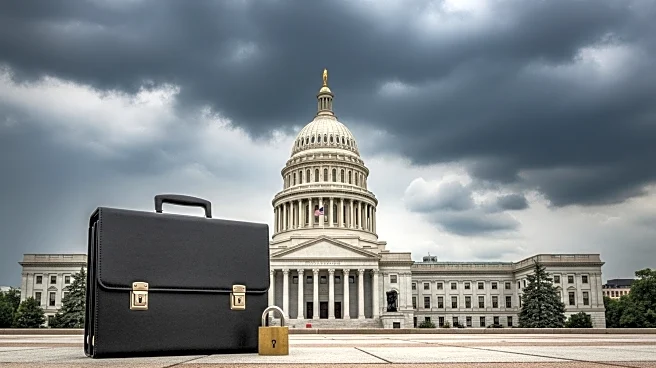What is the story about?
What's Happening?
The U.S. government is on the verge of a shutdown as it approaches a critical funding deadline. The federal government is set to run out of funding on Wednesday, and if lawmakers do not reach a stop-gap agreement, it could result in the furlough of hundreds of thousands of public employees and the suspension of various services. President Trump is scheduled to meet with congressional leaders to negotiate a solution. The situation is not only a funding battle but also involves negotiations directly with the President. The Republicans, who control Congress and the White House, need to secure agreement from at least seven Democratic senators to pass a funding deal. The Democrats are focused on ensuring subsidies for health insurance, which are set to expire, are reinstated.
Why It's Important?
A government shutdown could have significant implications for the U.S. economy and public services. The potential furlough of federal workers and suspension of services could disrupt various sectors and impact economic stability. The political dynamics at play, with the need for bipartisan cooperation, highlight the challenges in reaching a consensus. The Democrats face pressure to respond to President Trump's negotiation tactics, while Republicans aim to maintain government operations. The outcome of these negotiations could influence public perception and political capital for both parties.
What's Next?
The immediate focus is on the meeting between President Trump and congressional leaders to reach a funding agreement. If a deal is not reached, the government could face a shutdown, leading to economic and political repercussions. The Democrats may need to balance their stance on health insurance subsidies with the risk of being blamed for a shutdown. The situation remains fluid, with potential for last-minute negotiations to avert a shutdown.


















